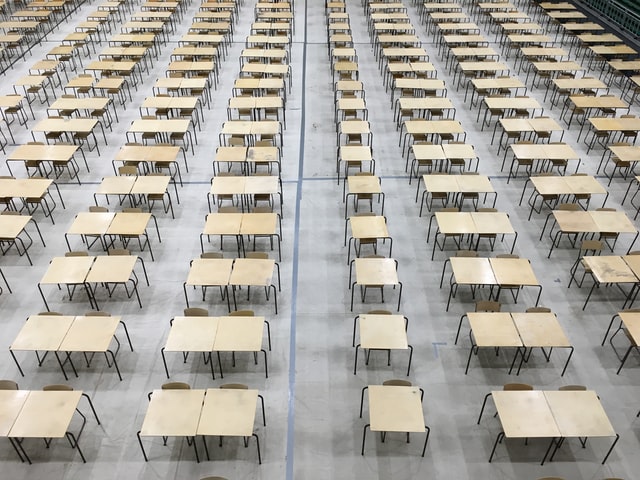Guest blog by Alix Robertson, Associate at the Centre for Education and Youth.
The new grading system
When schools closed in March and exams were cancelled, we all knew that the process of awarding results would be challenging. The decision was made that schools would supply the exam regulator Ofqual with estimated grades, and rank pupils within grades for each subject. Ofqual would then standardise these results, drawing, amongst other things, on schools’ historical performance and pupils’ prior attainment – an approach schools minister Nick Gibb described as a ‘good model’.
At The Centre for Education and Youth (CfEY), amplifying sector, youth and practitioner voices is of paramount importance to our team. Following each results day, CfEY brought together a group of experts, including young people, to talk about what happened with GCSE and A level results in 2020, and discuss how we should move forward.
This blog provides a short summary of what they told us.
A level results
Nearly 40% of A level results were downgraded and there was evidence that poorer students had been disproportion-ately and negatively affected.
Keziah Featherstone, Head of School at Q3 Academy Tipton, described how her staff had been preparing for bad news, as her school serves a community characterised by disadvantage. Looking at the data they found that 25% of results had been downgraded, which Keziah admitted was actually ‘a relief’ when compared with the national picture. In spite of this she described being ‘absolutely devasted’ for students whose grades would deprive them of the opportunity to take up their university offers. Keziah told us that staff were ‘angry’ and ‘disappointed’.
The mood at our A levels seminar was low. This is hardly surprising given that nearly 40% of results were downgraded and there was evidence that poorer students had been disproportionately and negatively affected. Even those who were least affected told us they felt unable to celebrate whilst so many were worried about how their outcomes would affect their future.
the ‘vast majority’ of subjects, especially those with larger cohorts, saw downgrades.
Gill Pooley, Deputy Head at Sydenham School, had also tried to prepare as best as possible. Sydenham runs a large joint sixth form with a local boys’ school, and Gill said she had worked hard to reassure students and families about the disappointing results. Her school faced a confusing mix of outcomes across subjects. One subject saw results increase significantly, others with small intakes saw hardly any changes, whilst the ‘vast majority’ of subjects, especially those with larger cohorts, saw downgrades.
While Gill said some students received ‘the grades that they deserved’, others had their results yanked down by up to two grades. She was frustrated that the centre-assessed grades had not been respected after staff had invested so much time in ensuring a robust process.
Student Davina Dinguana spoke for many in saying:
‘Personally I was very happy, but then hearing about other people kind of made it a bit bittersweet, because you don’t want to be celebrating when there are some people who maybe deserved the same results as you, or even higher, but then didn’t get the results they deserved … It was just a very unclear process.’
A level student Davina Dinguana
Stephen Jones, Warden of independent school St Edward’s, highlighted that students taking the International Baccalaureate at his school had been through the same turmoil in July. The school was still fighting hard after many students lost university places due to a similar modelling process.
Students taking the International Baccalaureate at his school had been through the same turmoil in July.
Following another last-minute change of heart by the government, teachers were grappling with the idea of ‘valid’ mock exams being considered. Many were also struggling to understand the appeals process, amid concerns that delays would lead many young people to lose university places they had set their hearts on.
GCSE results
Following a spectacular volte-face by the government, the week between A level results and GCSE results ended up being no less unsettling. The government announced that grades determined by Ofqual’s algorithm would be abandoned and students in England would receive the centre assessment grades chosen by their teachers instead.
On the plus side, this meant that our GCSEs seminar took place in a much brighter atmosphere. The choice to revert to centre-assessed grades was met with relief by many teachers and young people.
Our GCSEs seminar took place in a much brighter atmosphere.
Claire Price, Principal of RSA Academy, described it as ‘the most tumultuous’ exam and results series of her professional career. She reflected:
‘For me, what it has shown is the best and the worst of the system. The worst is about using the wrong drivers, valuing the wrong things, confusion, lack of clarity… The best has certainly been the young people. The students who have shown enormous resilience, courage, and fortitude in what’s been the most difficult situation.’
Claire Price, Principal of RSA Academy
David Thomas, Principal of Jane Austen College, said that the focus on supporting young people after so much upheaval was paramount. His staff were in agreement that their main priority must be making sure that politics and confusion did not overshadow the achievements of young people, who had worked ‘incredibly hard’.
The main priority must be making sure that politics and confusion does not overshadow the achievements of young people.
GCSE student Hanifah captured the feelings of many young people in saying that while she felt her teachers had been there to support her, frustration over the way results had been handled was inescapable.
‘I think going forward there will definitely be a lot of young people that are going to be pretty angry when it comes to voting in the next few years. I definitely know that I’ll be using my vote and I think a lot of young people will be as well.’
GCSE student Hanifah
Looking forward to the future, Aretha Banton, an Assistant Principal and Co-Founder of Mindful Equity UK, said teachers were feeling ‘overwhelmed and exhausted but very hopeful’. She added that while it seemed that much of the ‘uncertainty and anxiety’ could have been avoided, it is important now to move forward with ‘really secure and robust plans in place for our future cohorts’.
It is important now to move forward with ‘really secure and robust plans in place for our future cohorts’.
What next?
Our panel embodied the education sector’s exceptional resilience. All were able to speak of positive things to celebrate and look forward to; from communities coming together to make their voices heard, to the pleasure of getting back into school and working with pupils and colleagues again.
School leaders agreed that ‘we should be erring on the side of generosity’ when it comes to students’ futures, and supporting their wellbeing as they return to embark on the next stage of their education.
‘We should be erring on the side of generosity’ when it comes to students’ futures.
This is a focus CfEY explored in our latest report on social and emotional learning, an approach that may help the sector to ‘build back better’ in September and ensure young people can remain optimistic about what is to come. We wish all school leaders, teachers and students the very best in tackling the next challenge of returning to school.
You can view both roundtables on CfEY’s YouTube account here. Make sure you subscribe to keep up to date with similar events in the future.
If you are interested in finding out how Oriel Square can help your organisation please get in touch. You can find us on Twitter, Facebook and LinkedIn @OrielSquare.

